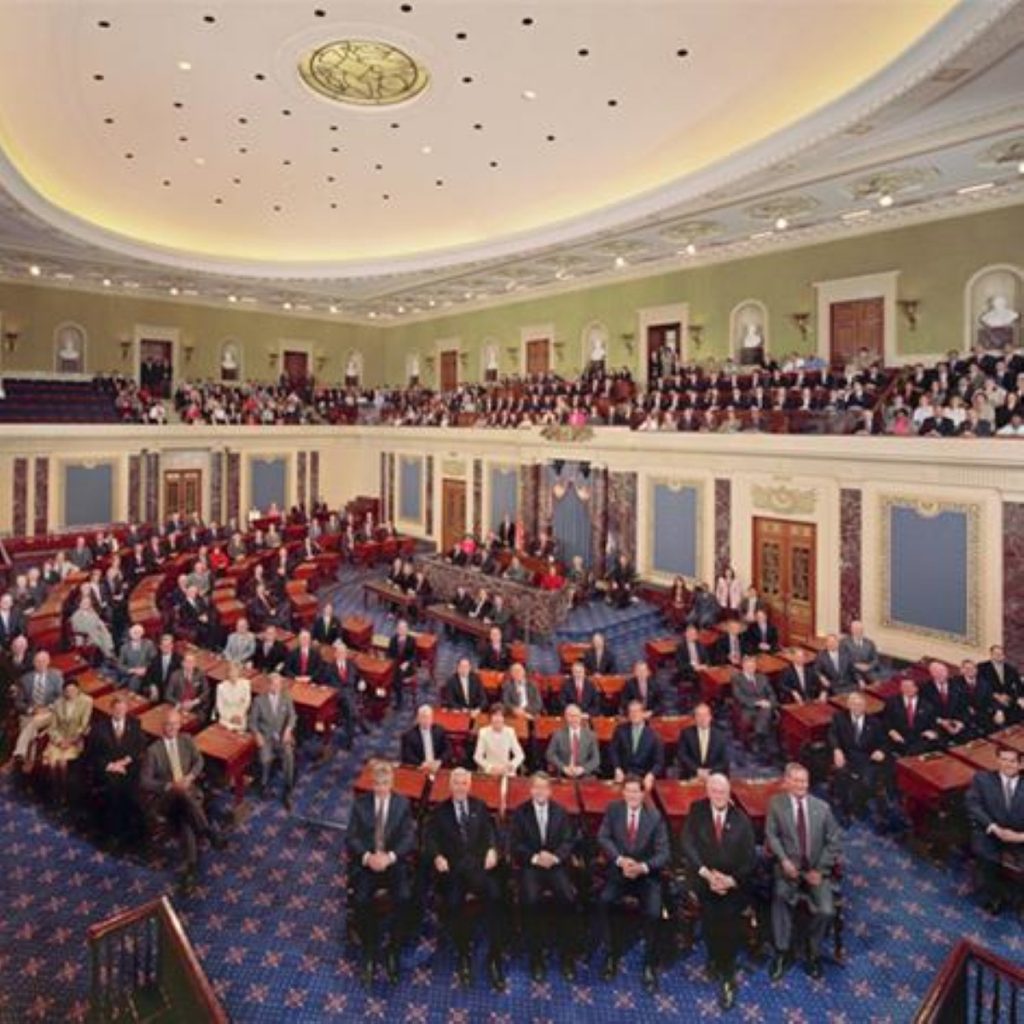Democrats tighten grip on Senate
While the election of Barack Obama might dominate the headlines, the Democratic party has also made significant gains in the US Senate, taking five seats so far from the Republicans.
The party won senate seats in New Mexico, North Carolina, Virginia, New Hampshire and Colorado.
They had until now relied on the support of two independents for a 51-49 majority in the Senate.
Some 35 of the Senate’s 100 seats are being decided today, and voters are choosing all 435 House of Representatives seats.
The Democrats control the House 235-199 and given the way the rest of the election results have gone they could well increase their majority significantly in the lower house of Congress as well.
Several state governors are also being chosen, with initiatives on abortion and animal rights on the ballot papers in some states.
Of the 35 Senate seats available, 23 were held by the Republicans and 12 were held by the Democrats.
The Democrats will definitely have a majority of 54 Senators meaning they would no longer have to rely on the two independents, but senior party figures are reported to be playing down the prospect of achieving the so-called “super-majority” of 60 senators. That said, there are potentially a further three Senate seats – Minnesota, Georgia and Alaska – up for grabs, which could give the Democrats 57 Senators.
The Democrats feel they have the best chance in Alaska where Ted Stevens, while being the longest serving Republican in the Senate, has also recently been convicted of making false statements about gifts he received, and was already facing a tough re-election battle against the Democratic Mayor of Anchorage, Mark Begich.
The conviction has given Mark Begich a significant boost. He leads Mr Stevens by 52 per cent to 41.7 per cent in all polls in the state.
While a super-majority of 60 Senators would prevent Republicans from using procedural hurdles to hold up legislation, a majority of 57 Senators is unheard of in recent history. Most presidents have had to face a hostile Senate in that the majority party is usually the opposite to that represented by the executive. For instance, president Bill Clinton faced a Republican dominated Senate for his entire presidency and vice versa for George Bush Snr. A Senate dominated by his own party could well be a significant boost to new president Obama.
Republican candidates endured a miserable day at the polls in most of the closely-fought states.
Virginia voters replaced retiring Republican veteran Senator John Warner with a Democrat, former Virginia Governor Mark Warner.
New Mexico followed a similar pattern, with Democrat Tom Udall voted in to replace long-term Republican senator, Pete Domenici. Mr Udall’s cousin, Mark Udall, also unseated a Republican in Colorado.
In North Carolina – one of the states where pollsters predicted a close fight – projections showed Republican incumbent Elizabeth Dole beaten convincingly by Democrat rival Kay Hagan.
Another key battleground state was New Hampshire – a traditionally strong Democrat state with a Republican incumbent, John Sununu.
Projections suggest he has lost his seat to the popular former governor, Jeanne Shaheen.
There was some good news for the Republicans, with voters in Kentucky and Mississippi returning their candidates despite determined efforts by Democrat rivals. But nothing will stop tonight being viewed as anything but a landslide for the Democratic party.





-01.png)